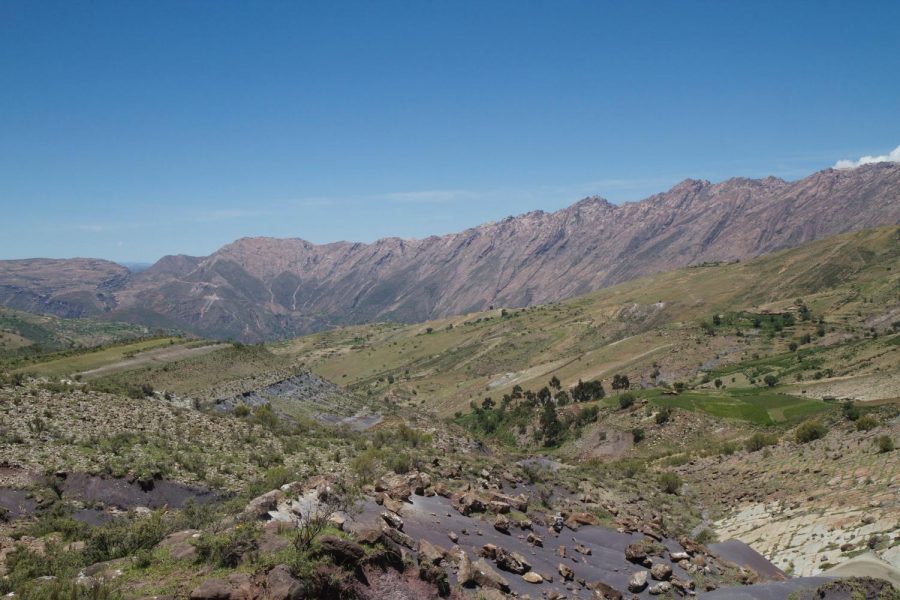On Oct. 20, 2019, when elections took place in my home country of Bolivia, I was in in my apartment in Amherst, Massachusetts doing homework and preparing for class on Monday.
I was born and raised in La Paz, Bolivia, a country located in the middle of South America. I moved to the United States almost four years ago to attend college. Although many in my social circle leave the country for college, it was still hard to leave my family and friends and start afresh in a new place.
I left Bolivia in 2016 right around the time when its then-president, Evo Morales, called for a referendum to ask the people whether they wanted him to run for a fourth term. By this point, Morales had been in office for about 10 years. Although the constitution only allowed for two consecutive terms, he had managed to stay in power for so long by treating constitutional law like play-dough.
I remember being in my kitchen with my eyes glued to my phone while my family reported the results back to me and feeling hope for the first time in a long time. Hope that we wouldn’t turn into Venezuela and hope that Morales’ unjustly long reign would reach its end.
But it hurt, too. I was far away, unable to cast a vote and have my voice heard.
I didn’t get to be part of the hope that was starting to bloom. I didn’t get to say “No, I don’t want you to run again.” I didn’t get to march with my people when Morales decided that his human right to run for president trumped the will of the people.
I felt the same on election night when the preliminary results report suddenly stopped. Or the next day when it was clear that something shady was going on, and everyone I knew—including my 94-year-old grandma—took to the streets to protest. This protest didn’t stop for the next three weeks.
I experienced the strange dichotomy of my life staying exactly as it was and yet not being the same at all.
I still had to wake up, show up to class, do my homework and study as if it were just another regular day. Nothing changed at UMass. The leaves still turned, the temperature still dropped and the semester went on without a hitch. And yet, I felt like everything should’ve stopped. My friends’ and family’s lives had changed dramatically, so why hadn’t mine?
Why was I thinking about what Thanksgiving food I would eat when everyone back home was standing in line for hours hoping to procure gas and maybe some chicken for the next week?
While I was watching TV to distract myself, my sisters were trapped at home, unable to leave because even walking down to the corner store could put their lives in danger. The imminent danger is over now, but hearing any loud noise still triggers a fear in them that there’s another angry mob coming their way.
Rioters supporting Morales’ party burned down civic leaders’ homes, journalists’ homes, buses and hospitals. They attacked people on the street. And, where was I?
I was thinking about an assignment I had due next week.
Now that the dust has settled, I realize that despite not being there, I did have a role to play in the fight: to inform people as much as I could.
I’ve been seeing a lot of people buying into Morales ‘coup’ narrative. As a journalism major, my job is to gather the facts, and it hurts me to see my personal heroes like Bernie Sanders and Alexandria Ocasio-Cortez not taking the time to do the same. The fact is that there was no coup, no matter how loud he yells so from Mexico. There were only peaceful protests, a tactic Morales used himself in 2004 to oust his predecessor: then-President Carlos Mesa.
I also have the privilege of being able to write about this issue without fear of retaliation, something even professional journalists back home don’t. Moreover, I have a platform on which to speak, and I’ve learned that people listen. It’s a great power that comes with a great responsibility, and it’s one that I don’t take lightly.
Rioters may not be in the street anymore and new elections may be on their way, but our fight is far from over. There’s still a lot of misinformation out there, and I feel like it’s my duty to help those who can’t look past their political affiliations to understand that there are realities more complex than left vs. right.
If there’s anything that I’ve learned from being abroad while Bolivia was fighting for democracy, it’s that good journalism is extremely important. Seeing so many journalists work relentlessly to bring the truth to light no matter where they are in the world, inspires me to always do the same, no matter the risk.
Xenia Arinez de la Vega is the Spanish and German editor and can be reached at [email protected].





















Daniela • Nov 28, 2022 at 5:16 am
Gracias!
Empieza YA tu vida de buena periodista que reporta la verdad de Bolivia en Inglés. (Que no hay muchos asi y te necesitamos!).
Hazlo en periódicos de buena reputación, incluso hazlo en sus blogs (como lo hace la CEPRD cuando publica mala información sobre Bolivia en monkey blog y luego pretende que sus artículos son de MIT y del Washington post).
Buena suerte.
chris Sarage • Dec 12, 2019 at 5:26 pm
Excellent article! I live in Bolivia for about 20 years now and appreciate your view. For many years we have lived in fear during Evo’s dictatorship. Controlled Media, government agents, rigged elections. Now that real democracy has triumphed we can breath easier. Thank you Chris Sarage
Minuteman Pizza
Uyuni
Umass class of 1992